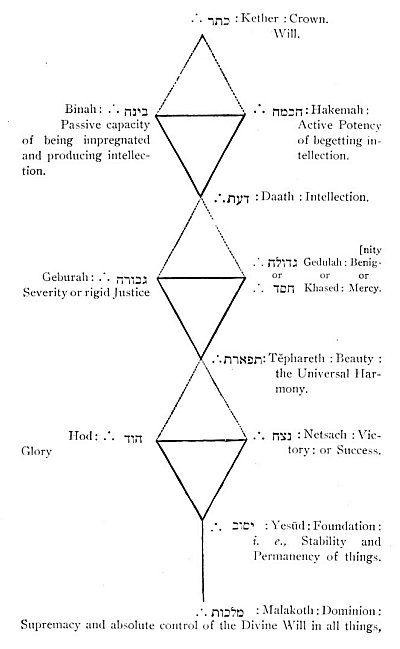entities, but as the only entities, alone possessing the stability and certainty and reality vainly sought among phenomena. The only reality was Thought. “All real existence,” they said, “is mental existence; non-existence, being inconceivable, is therefore impossible; existence fills up the whole range of thought, and is inseparable from its exercise; thought and its object are one.”
Xenophanes used ambiguous language, applicable to the material as well as to the mental, and exclusively appropriate to neither. In other words, he availed himself of material imagery to illustrate an indefinite meaning. In announcing the universal being, he appealed to the heavens as the visible manifestation, calling it spherical, a term borrowed from the material world. He said that God was neither moved nor unmoved, limited nor unlimited. He did not even attempt to express clearly what cannot be conceived clearly; admitting, says Simplicius, that such speculations were above physics. Parmenides employed similar expedients, comparing his metaphysical Deity to a sphere, or to heat, an aggregate or a continuity, and so involuntarily withdrawing its nominal attributes.
The Atomic school, dividing the All into Matter and Force, deemed matter unchangeable in its ultimate constitution, though infinitely variable in its resultant forms. They made all variety proceed from the varied combinations of atoms; but they required no mover nor director of the atoms external to themselves; no universal Reason; but a Mechanical Eternal Necessity, like that of the Poets. Still it is doubtful whether there ever was a time when reason could be said to be entirely asleep, a stranger to its own existence, notwithstanding this apparent materialism. The earliest contemplation of the external world, which brings it into an imagined association with ourselves, assigns, either to its whole or its parts, the sensation and volition which belong to our own souls.
Anaxagoras admitted the existence of ultimate elementary particles, as Empedocles did, from the combinations whereof all material phenomena resulted. But he asserted the Moving Force to be Mind; and yet, though he clearly saw the impossibility of advancing by illustration or definition beyond a reasonable faith, or a simple negation of materiality, yet he could not wholly desist from the endeavor to illustrate the nature of this non-matter or mind, by symbols drawn from those physical considerations which
p. 677
decided him in placing it in a separate category. Whether as human reason, or as the regulating Principle in nature, he held it different from all other things in character and effect, and that therefore it must necessarily differ in its essential constitution. It was neither Matter, nor a Force conjoined with matter, or homogeneous with it, but independent and generically distinct, especially in this, that, being the source of all motion, separation, and cognition, it is something entirely unique, pure, and unmixed; and so, being unhindered by any interfering influence limiting its independence of individual action, it has Supreme Empire over all things, over the vortex of worlds as well as over all that live in them. It is most penetrating and powerful, mixing with other things, though no other thing mixes with it; exercises universal control and cognition, and includes the Necessity of the Poets, as well as the independent power of thought which we exercise within ourselves. In short, it is the self-conscious power of thought extended to the Universe, and exalted into the Supreme External Mind which sees, knows, and directs all things.
Thus Pantheism and Materialism were both avoided; and matter, though as infinitely varied as the senses represent it, was held in a bond of unity transferred to a ruling power apart from it. That Power could not be Prime Mover, if it were itself moved; nor All-Governing, if not apart from the things it governs. If the arranging Principle were inherent in matter, it would have been impossible to account for the existence of a chaos: if something external, then the old Ionian doctrine of a “beginning” became more easily conceivable, as being the epoch at which the Arranging Intelligence commenced its operations.
But this grand idea of an all-governing independent mind involved difficulties which proved insuperable; because it gave to matter, in the form of chaos, an independent and eternal self-existence, and so introduced a dualism of mind and matter. In the Mind or Intelligence, Anaxagoras included not only life and motion, but the moral principles of the noble and good; and probably used the term on account of the popular misapplication of the word “God,” and as being less liable to misconstruction, and more specifically marking his idea. His “Intelligence” principle remained practically liable to many of the same defects as the “Necessity” of the poets. It was the presentiment of a great idea, which it was for the time impossible to explain or follow out.

Moe is the founder of GnosticWarrior.com. He is a father, husband, author, martial arts black belt, and an expert in Gnosticism, the occult, and esotericism.





